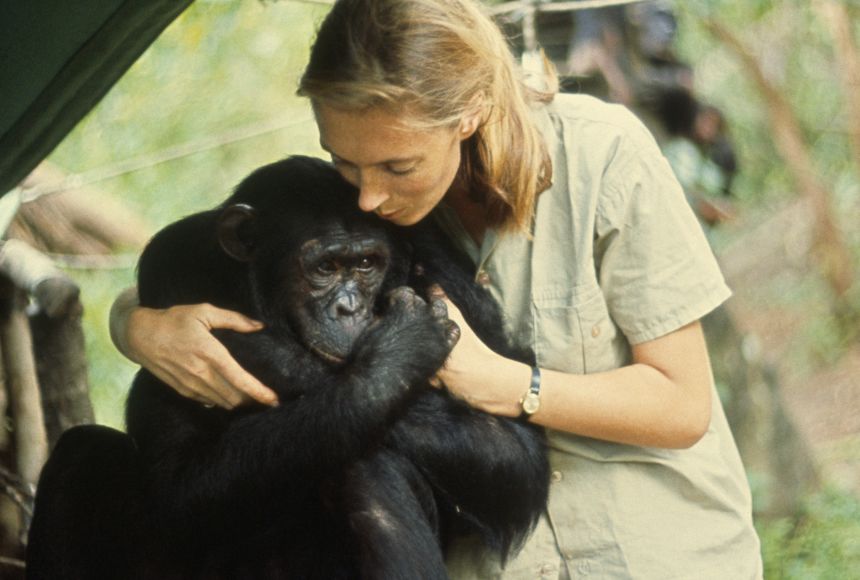National Geographic Society opens a new window into the animal world with the launch of the Wildlife Intelligence Project. This exciting initiative empowers three National Geographic Explorers to delve deep into animal cognition and behaviour, potentially transforming how we perceive, interact, and connect with wildlife.
Dr Jane Goodall’s Inspiring Works
Following in the footsteps of visionary primatologist Dr Jane Goodall, the National Geographic Society has embarked on a global quest to unlock the secrets of the animal mind. Through a rigorous search, they’ve selected three rising stars – early-career scientists whose revolutionary research delves into the hidden world of animal cognition and behaviour.
In addition, their work promises to not only answer fundamental questions about animal decision-making but also transform how we understand, interact with, and ultimately value the creatures with whom we share our planet.
Fuelled by Dr. Jane Goodall’s groundbreaking work and her 2021 Templeton Prize win, the Templeton World Charity Foundation invested in the National Geographic Society to empower a new generation of scientists. This grant seeks individuals who, like Dr Goodall, possess insatiable curiosity, a deep sense of purpose, and the drive to revolutionize our understanding of animal intelligence and behaviour. The chosen explorers embody these traits, poised to unlock the secrets of the animal mind and redefine humanity’s relationship with the natural world.
Commenting on the new project, Ian Miller, Chief Scientist and Innovation Officer of the National Geographic Society, said,
“We are proud to launch the Wildlife Intelligence Project and to support and empower the next generation of scientists committed to furthering Dr Goodall’s legacy of inspiring people to take action to protect the wonder of our world. The questions they seek to answer about animal intelligence will provide invaluable knowledge for both the scientific community and humanity as a whole.”
Future Champions of Conservation
Mauricio Cantor
Cantor is a Brazilian biologist and assistant professor at Oregon State University who will examine cooperative behaviour among dolphins and humans across three sites in Brazil, India and Myanmar.
Further, Cantor will delve into the interaction between ecology and culture, exploring how specific environmental factors might have shaped the evolution of this unique human-dolphin cooperation in fishing communities. On top of that, Cantor heads the Lab for Animal Behavioural Interaction Research in The Ocean (LABIRINTO) and serves as adjunct faculty at two universities in Brazil where he teaches and supervises ocean behavioural ecology.
Felicity Muth
Muth is the head of the Muth Lab and assistant professor in the Department of Neurobiology, Physiology and Behaviour at the University of California Davis. Muth’s research will explore how ecology shapes the behaviour of wild bees. Working with wild bees from rural Nevada and California, Muth will study how the surrounding environment affects how bees learn and make decisions. Also, Muth is a prolific science communicator and recently published a children’s book on bee diversity titled “Am I Even a Bee?”.
Tiago Falótico
Falótico is a Brazilian primatologist and ethologist who studies wild primates’ behaviour, social learning and culture. Falótico’s research will focus on using tools among wild capuchin monkeys in Brazil’s Serra da Capivara and Ubajara National Parks. Cantor employs the lens of primate archaeology, comparing tool-use behaviours across capuchin sexes and groups. This unique approach reveals insights into primate cognition, cultural transmission, and even links to human evolution.

The Future of Wildlife Study
Three National Geographic Explorers – Cantor, Falótico, and Muth – are embarking on groundbreaking research that will change how we see animals and ourselves. Not only are they experts in their fields, but they’re also passionate, adaptable, and open-minded.
Additionally, their revolutionary research promises to not only expand our understanding of the animal mind but also reshape our relationship with the natural world, fostering more profound empathy and respect for its diverse inhabitants.
The project illuminates a path towards a brighter future with each discovery and groundbreaking revelation. This discovery is not just about studying animals; it’s about learning from them, appreciating their brilliance, and safeguarding their existence alongside our own. The Wildlife Intelligence Project is not just an exploration of the animal mind but a quest to rediscover our place within the tapestry of life on this shared planet.
About Dr Jane Goodball
Dr Jane Goodall is the founder of the Jane Goodall Institute, UN Messenger of Peace, and the Templeton Prize. She is a conservation icon and is celebrated for her groundbreaking research on chimpanzees. At just 26 years old, her research transformed the relationship between humans and animals. Now nearly 90, while still tirelessly advocating for wildlife conservation and environmental stewardship, she reflects on the next generations of researchers,
“We are all interconnected, people, animals, our environment. The work being done by the recipients of the Wildlife Intelligence Project is essential to developing a better understanding of human-animal behaviour and the healthy functioning of our planet. When nature flourishes, we all flourish.”
About National Geographic Society
The National Geographic Society is a global nonprofit organization that uses the power of science, exploration, education and storytelling to illuminate and protect the wonder of our world. Since 1888, National Geographic has pushed the boundaries of exploration, investing in bold people and transformative ideas, providing more than 15,000 grants for work across all seven continents, reaching 3 million students each year through education offerings, and engaging audiences around the globe through signature experiences, stories and content. To learn more, visit nationalgeographic.org or follow them on Instagram, LinkedIn and Facebook.


